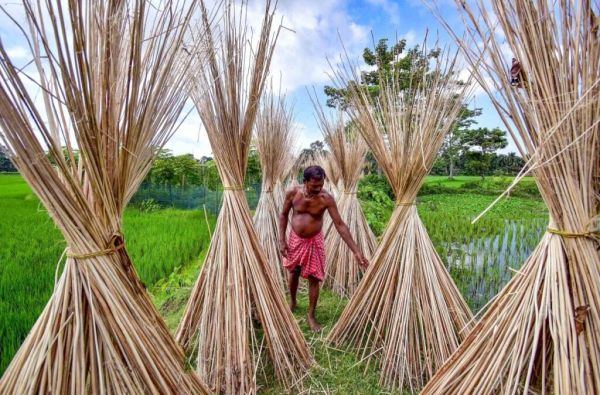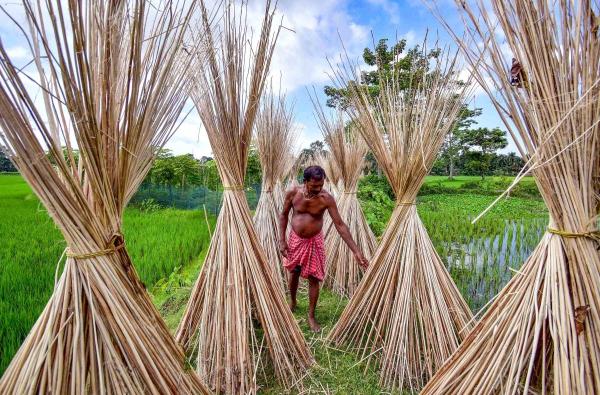

India on Saturday decided to impose port restrictions, with immediate effect, on the import of jute and allied fibre products from Bangladesh to check influx of cheap, subsidised imports from neighbouring country which have depressed prices, hurt farmers’ incomes, and led to underutilised capacity in Indian jute mills leading to closures and unemployment.
These restrictions will apply to imports into India of Bangladesh jute and allied fibre products across all land and seaports, with the exception of the Nhava Sheva seaport, according to an official statement.
The restrictions aim to counter unfair trade practices, promote Atmanirbhar Bharat, and protect rural livelihoods tied to India’s domestic jute economy.

The government is also taking steps to ensure that the imports from Bangladesh are not re-routed through third countries, circumventing the restrictions.
Under the SAFTA provisions, jute from Bangladesh enjoys a duty-free access to India. However, the market access extended by India in good faith has been misused to hurt India’s economic interests. The Indian jute industry has, for long, suffered due to the adverse impact of dumped and subsidized imports of jute products—particularly yarn, fibre and bags—from Bangladesh, the statement explained.
There is credible evidence that Bangladeshi jute exports continue to benefit from state subsidies extended by the Government of Bangladesh. In response to these concerns, the Directorate General of Anti-Dumping and Allied Duties (DGAD) conducted detailed investigations and imposed Anti-Dumping Duty (ADD) on jute goods originating from Bangladesh.
However, the imposition of ADD has not yielded a substantial reduction in imports. Various large exporters managed to circumvent ADD through technical exemptions, exports through exempted firms (whose exports go beyond their production capacity), and misdeclaration to secure higher subsidies within.
Imports, which stood at $138 million in FY 2016-17 prior to the levy of ADD, declined marginally to $117 million in FY 2021-22 and have since risen to around $144 million in FY 2023-24.
Consequently, prices of jute in India fell below Rs 5,000 per quintal for FY 2024-25, against the minimum support price (MSP) of Rs 5,335, creating a vicious payment/liquidity cycle. Six mills remain closed with dues of Rs 1,400 crore, adding to Rs 400 crore is legacy dues from the mills.
Additionally, the influx of underpriced finished jute goods from Bangladesh has resulted in significant under-utilisation of capacity in Indian mills, threatening their long-term viability.
While Bangladesh made nominal adjustments in response to complaints the government continues to incentivize exports, particularly of value-added jute products. Notably, raw jute imports into India from Bangladesh remains outside the purview of ADD and therefore jute farmers currently do not enjoy any protection from dumping practices employed by Bangladesh exporters.
On the other hand, the Indian jute sector plays a critical role in supporting rural livelihoods, especially in West Bengal, which alone accounts for 78 per cent of national production. Raw jute is produced mainly in the state of West Bengal, Bihar, Assam, Orissa, Andhra Pradesh, Tripura and Meghalaya.
It is estimated that that the jute industry provides direct employment to over 4 lakh workers in organized mills and in diversified units including tertiary sector and allied activities, and supports the livelihood of around several lakh farm families.
In addition, a large number of persons are engaged in the trade of jute. Nearly 90 per cent of India’s jute output is consumed domestically, most of which is procured by the government. Artificially depressed prices caused by subsidised imports have had a direct and adverse impact on the income of jute farmers.